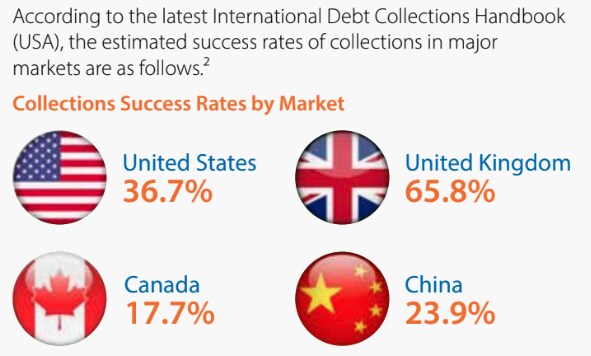Home > FinXEdge > Blogs > A more intelligent approach to debt collection with machine learning and AI
A more intelligent approach to debt collection with machine learning and AI

Machine learning can help fintech lenders, retail banks, financial services firms and collection agencies make debt recovery more effective, maximize ROI and improve customer satisfaction metrics.
Lending has always been risky business, what with delinquencies, defaulting and inefficiencies that come with it. But it is heading into even more choppy waters. Global consumer debt is estimated to be a whopping $46 trillion and the collection success rate in many geographies is alarmingly low. In the US alone, $600 billion of household debt is considered delinquent.

Considering the size of outstanding debt, even a small percentage improvement in debt collection numbers can majorly impact the profitability of lenders. With the Big Data revolution, machine learning and AI can be leveraged to improve recovery, while also addressing some of the other challenges that lenders face.
Some challenges faced in debt recovery
#1 Balancing efficiency with customer experience
Customers today have high service expectations from lenders. Even seemingly small efforts such as responsiveness on social media and personalized communication can make a big impact on how customers perceive the lender’s brand. These may even determine their loyalty to it.
Thus, it is important that the lender is able to offer a consistently delightful experience to the customer across their journey. In reality, however, a poor collection experience often ends up leaving the customer unhappy or angry, irrespective of how pleasant their origination or support experience has been. This can have a major impact on the brand perception and undermine the investments put into customer acquisition.
#2 One-size-fits-all communication methods
While the size of outstanding debts varies, not all defaulters have the same profile, behavior or motivation factors. However, lenders and collection agents often follow a cookie cutter approach in their communication: a stern and matter-of-fact tone, firmly worded messaging. This one-size-fits-all approach can negatively impact recovery because it may intimidate or anger customers even further.
#3 Abuse of collection practices
According to this CFPB Survey, one out of every four US customers contacted by debt collectors reported that they felt threatened. Nearly 40% of them were contacted more than 4 times a week by collectors, often at inconvenient times. And three out of four customers reported that in spite of requests to stop calling, collectors continued to do so.
With regulations also not always clear on the number and frequency of collection calls and how collectors may use voicemail, emails and texts, the customers are left at the receiving end of abuse from collection agents; but the brunt of their frustration and anger is borne by the lender’s brand.
Innovations in debt collection with AI and ML
With digitization, lenders — both traditional banks and financial services companies — have access to a lot of valuable customer data. This data can be analyzed with the help of AI and ML-powered tools to derive insights that open new doors to the optimization of collections, increased recovery and profitability, and customer satisfaction. AI and ML find application in four main areas in debt recovery.
Prediction of customer delinquency
The AI tool analyzes hundreds of parameters from FICO score and income to history and borrower’s behavior through the journey. Knowing who is likely to default will forewarn, and thus forearm, the lender. And allow them to formulate pre-emptive strategies for recovery. Edgeverve’s AI-powered FinXEdge Collect solution, for instance, evaluates internal transaction data (loan details, credit score, income, etc), external factors (weather, job data, GDP, micro and macro-economic events) and behavioral influencers (voice data, demographics and call notes) to predict delinquencies and recommend proactive outreach strategies for high risk customers.
Segmentation of borrower risk
This helps direct collection efforts towards the customers who are not only at risk of defaulting but also most likely to pay their debt. Much of debt collection effort is still manual with follow-up calls, emails and other forms of reach out done at an individual level. AI tools like FinXEdge Collect help improve process efficiencies, productivity and compliance through intelligent segmentation and prioritization of accounts along with prime-time recommendations for reach out.
Personalized communication
The aim here is to bring back the human element into the debt recovery process and thereby, improve customer response. Certain communication channels work best for certain kinds of customers. Machine learning tools can help:
Tailored recovery/settlement proposals
In most conventional collection practices, the decision on what recovery or settlement terms to propose to a customer was mostly left to the instinct and experience of the debt collectors, with loose guidelines in place. Machine learning tools can actually bring method to this madness. They leverage data to identify different customer profiles: those who are in a temporary state of hardship but who can and are likely to settle debts later versus those who plan on defaulting or have no intent to settle. These tools can also recommend the right settlement terms to propose to each of these customer types.
If you are a financial institution with a customer-centric approach wanting to leverage customer data to improve debt recovery and enhance customer experience, FinXEdge Collect may be just right for you. Find out more and request a meeting here.


FinXEdge Team
More blogs from FinXEdge Team >